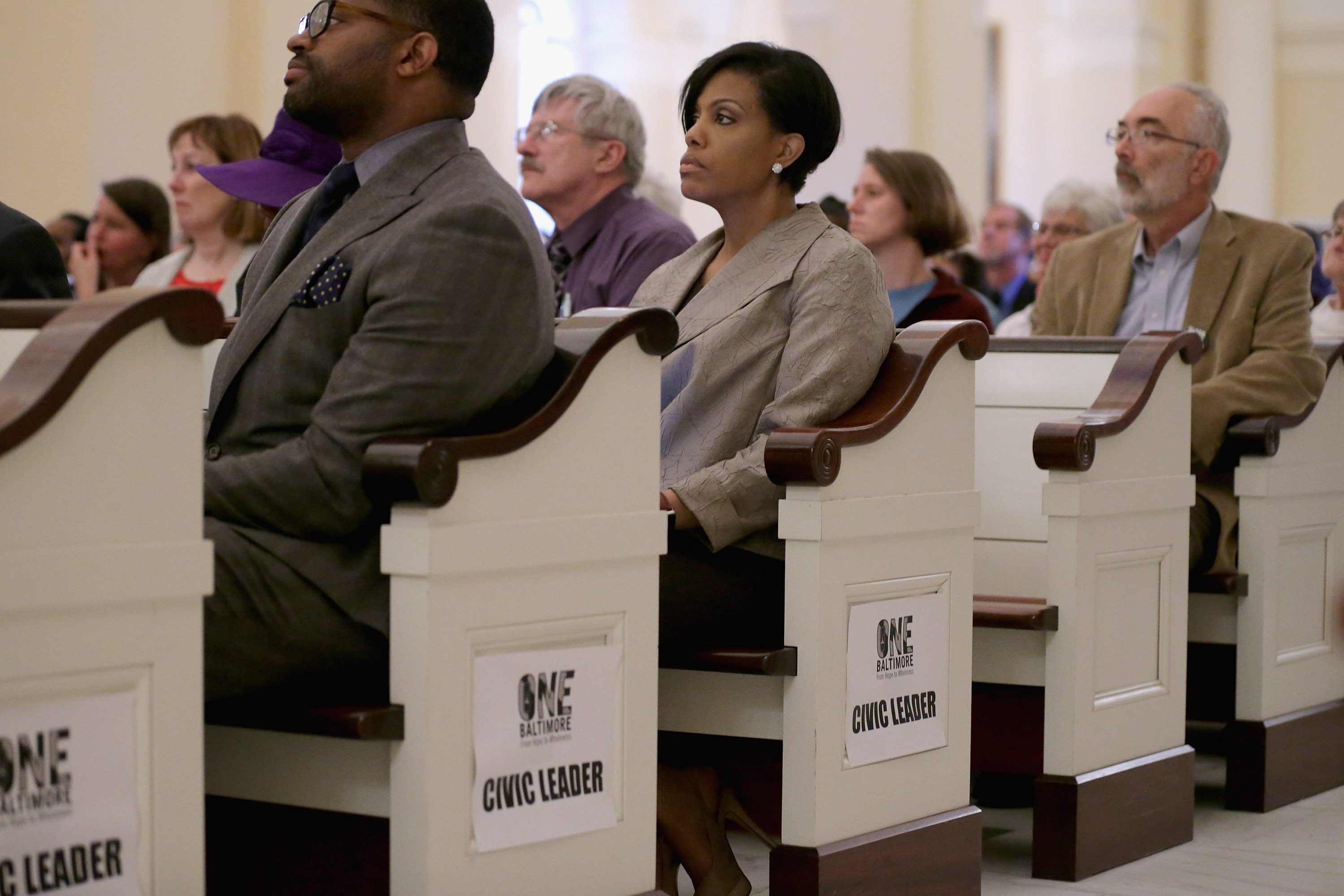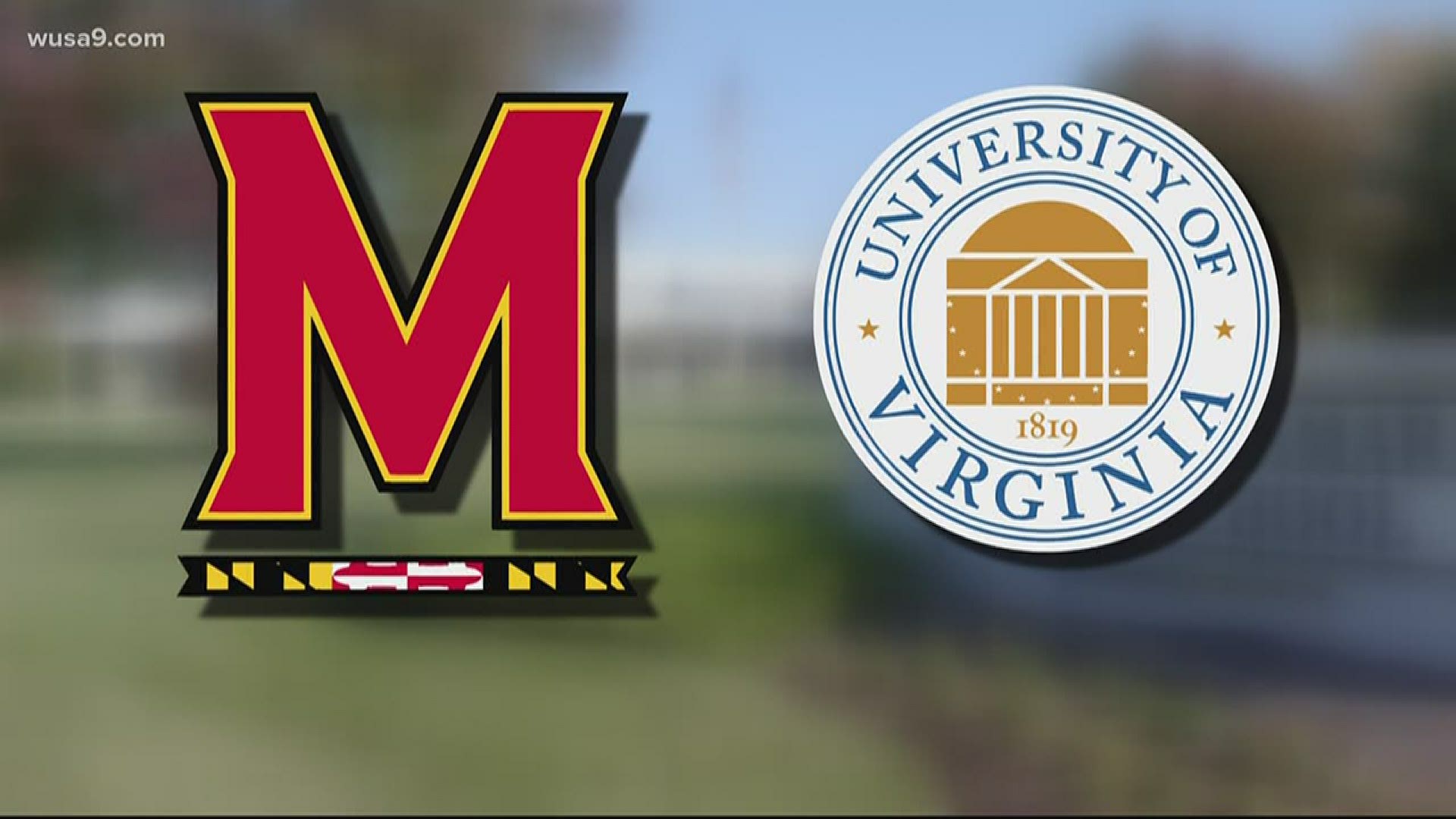BALTIMORE — Nearly a year after the unrest that followed the death of Freddie Gray, dozens of activists gathered outside City Hall and, one-by-one, urged voters to transform the protests into more permanent political change.
The rally, sponsored by the Coalition for the Transformation and Betterment of Baltimore, took place a day before voters in this heavily Democratic all but select a new mayor. But the mid-afternoon event, which was expected to draw more than 1,500 people, drew far fewer than expected. At times, the speakers and press covering the event outnumbered spectators.
Monday’s rally came nearly a year after riots followed the April 27, 2015, funeral of Gray, who died April 19, 2015, a week after he suffered a critical spinal injury in the back of a police transport van.
Since last April, activists have routinely reject the term “riots,” instead referring to what happened as “uprisings.”
“The rally today is about the transformation of Baltimore (and) what the coalition has done within the past year as a result of the uprisings,” said Lorren Hayman, one of the organizers. “We’re transitioning from our protest to our plan.”
While civic, political and faith leaders, including Mayor Stephanie Rawlings-Blake, took part in an interfaith prayer service on Monday at the nearby Basilica of the National Shrine of the Assumption of the Blessed Virgin Mary, activists — as well as most of the candidates hoping to replace Rawlings-Blake — urged the crowd to take control of the city.
Former Mayor Sheila Dixon, hoarse from election appearances, urged onlookers to vote: “I need us to move this city in a way that we haven’t done it before,” she said.
Dixon criticized Rawlings-Blake’s administration for what she called its failure to build on the momentum of last year’s protests. “Why didn’t they continue to build on that? Now, this summer, we have 9,000 kids who want jobs – we only have money for 5,000 kids. What’s going to happen?”
Dixon is locked in a tight race for the Democratic mayoral nomination. Tuesday’s primary will essentially dictate who becomes the city’s next mayor, since Baltimore hasn’t elected a Republican mayor in nearly half a century. Dixon and state Sen. Catherine Pugh are the front runners. Among others in the field are city Councilman Carl Stokes and Black Lives Matter activist DeRay Mckesson.
In an interview, Dixon said she got into the race because she believes city leaders didn’t “maximize” the opportunity to make permanent changes after the protests.
“A year later, I don’t believe that the city has come as far as it needs to,” she said. “There are just so many challenges that I think this city and the leaders of this city did not take advantage of. ... It’s about putting systems in place and building on it, not just because last summer the attention of the world was on us. Let’s do this all the time. That’s why I decided to get back into it.”
Rising violence followed last spring’s unrest: recent statistics show that 2015 was the city's deadliest year on record. Baltimore's 344 homicides were the second highest ever recorded, The Baltimore Sun reported. The highest, at 353, took place in 1993, when about 100,000 more people lived here.
Violence continues — over the weekend, police said, 10 people were shot, three of them fatally. The incidents included a broad daylight shooting at a gas station and another one block from the popular tourist-oriented Inner Harbor, The Sun reported.
Lt. Col. Melvin Russell, who heads the city police department’s Community Partnership Division, Baltimore's police force must “heal our city from the areas where we have hurt it.”
He noted that a few key changes have taken place among law enforcement, including a push to recruit more police from inside city limits.
“I’m tired of only 21% of police living in the city,” he said. “I’ve got to put myself in that number.” Russell noted that he and his family are planning to move back into the city.
![At @standupbmore rally, Jahiti sings. @USATODAYpic.twitter.com/BU3pfbKuRwmdash; [oembed : 83528312] [oembed : 83528312]](/Portals/_default/Skins/PrestoLegacy/CommonCss/images/smartembed.png)
He also said police have recruited local clergy to ride in police cruisers to provide a kind of spiritual check on what he said is a small number of misbehaving police.
“The ones that don’t want to do right, I’m going to tell you, it’s real hard to continue to abuse the community while you’ve got ‘revs’ sitting in the car with you,” he said.
“We’ve all got to take responsibility in this thing called Baltimore — all of us, all of us, all of us got to take ownership in this thing," he said. "At the end of the day, if we don’t stick together and stand up for each other, nobody else will.”


![635972205921154821-IMG-1694.JPG [image : 83528184]](http://www.gannett-cdn.com/media/2016/04/25/USATODAY/USATODAY/635972205921154821-IMG-1694.JPG)
![GTY 524237798 A CLJ USA MD [image : 83528086]](http://www.gannett-cdn.com/media/2016/04/25/USATODAY/USATODAY/635972204956594455-GTY-524237798-81468821.JPG)
